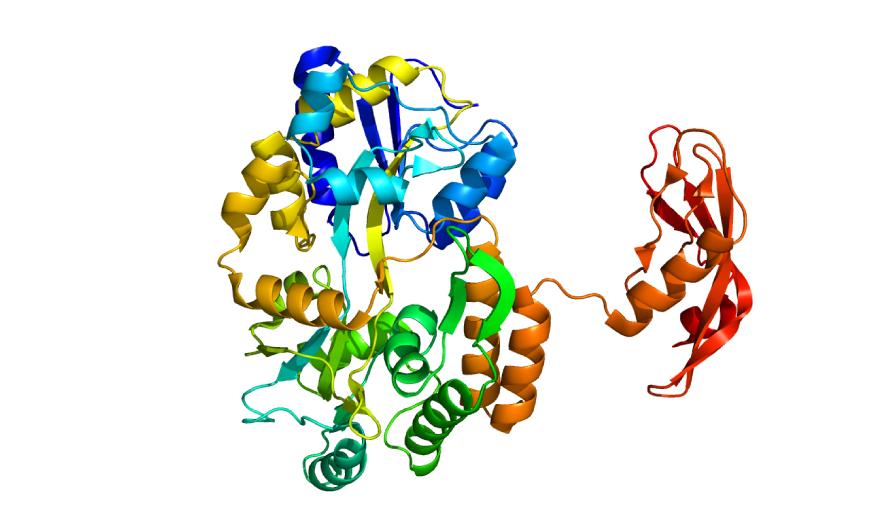Anyone who has ever attempted to lose weight or increase lean body mass is familiar with the sensation of hitting a plateau. Perhaps you’re a slow gainer who adds a few pounds of muscle only to see it vanish a few months later. Or perhaps you worked your tail off to lose a few pounds, reached a plateau, and gradually reverted to your starting weight. Whatever the case, it’s infuriating.
We’ll discuss one of the primary reasons this occurs and what you can do about it in this article. This is referred to as body weight set point theory, and it is the belief that your body weight range is predetermined. We’ll examine whether or not true set points exist; how they’re established, if they do; the degree of control you have, if any; and the implications for your future health and body composition goals.
Let’s get started.

Is Set Point Theory Truly Realistic?
According to set point theory, your body weight is maintained within a predetermined or “preferred” range. While there are divergent views on whether or not “set points” exist, the overwhelming body of research appears to support set point theory. This means that your body will always “settle” within a certain range of values. That may explain why, regardless of how hard some people work, they always seem to reach a point where their progress comes to a halt.
Therefore, is it possible to alter your natural weight range if that is the case?
Are you able to adjust your set point range?
To begin, it’s critical to understand how your body weight is calculated and how that affects your set point range.
Three factors contribute to your body weight:
- The genetic code
- Environmental conditions (diet and exercise)
- Epigenetic modifications (hormones)
In other words, your body’s weight range is determined by a variety of factors, including genes, hormones, exercise frequency, nutrition, and other physiological mechanisms.
Consider each of these in greater detail.
1. The genetic basis for body weight set points
“It’s entirely genetic.”
I’m sure you can think of at least one friend or family member who has used this as an excuse to avoid self-care and lifestyle changes.
However, here’s the thing: genetics play a role in determining your body weight… however, they are not your fate.
Yes, genetic factors can predispose individuals to a particular body weight set point range. However, researchers discovered that “bad genes” are unlikely to account for the rapid rise in global obesity rates.
According to a review of several studies on the genetics of obesity, “moving from genetic predisposition to obesity generally requires some modification of diet, lifestyle, or other environmental factors.”
The bottom line is that excessive calorie intake from an unhealthy diet, rather than genetics, typically accounts for your body type. Yes, you can alter your genetically predisposed body weight ranges through lifestyle changes such as calorie restriction, nutrient-dense food selection, and exercise.
2. The effect of environmental factors on the body’s set points for weight
As previously stated, two environmental variables contribute to your body’s set points: what you eat and how much you move.
Exercises

It’s unsurprising that exercise contributes to the establishment of your body’s set points.
Human physiology is governed by the first law of thermodynamics, which states that energy can be converted between different forms but cannot be created or destroyed. In other words, your body is naturally “balanced” in terms of energy. What you eat and drink is referred to as “energy in,” while what you burn is referred to as “energy out.”
In general, if you consume more calories than you burn, you will gain weight over time. Consuming fewer calories than you burn results in weight loss (although this is not always the case, as many have discovered).
As previously stated, certain genetic markers of obesity can be mitigated through lifestyle changes such as increasing your exercise frequency.
Exercise, particularly strength training, is the most effective method of fat loss. And the more exercise you do, the more likely you are to be able to alter your body weight set point as a result of decreased body fat and increased lean body mass.
Diet plan

Consumption of food is another critical factor in determining your body weight set point. As previously stated, your energy intake and output over time have a significant effect on your body weight set point.
While vigorous exercise is the most effective way to lose body fat, controlling your calorie intake is the most effective way to avoid weight gain and increase your set point range.
Regulating body weight, however, is asymmetric, which means it is much easier to gain weight and maintain it than it is to lose weight and maintain it. Most of us have encountered this at some point: as you lose weight, your body works harder to resist the change. With the slightest slip-up, it can feel as if you’re being “pulled back” to your previous weight.
However, depending on your health goals, there are several strategies you can use to combat this.
Adaptive metabolic changes do not account for the tendency of weight-reduced individuals to regain weight, according to research. In other words, individuals who lose weight are not “predisposed” to gain weight in the future. They simply do not.
1. Make the appropriate changes to their diet and exercise habits
2. Do so for a long enough period of time to affect their bodyweight set points.
Consistent, structured changes over time appear to be the most effective method for preventing weight gain and altering your body weight set point in obese individuals. As with any goal, developing habits is critical to success.
According to one study, obese individuals who alter their energy balance by 100 calories per day (either by eating less or increasing their physical activity) can avoid future weight gain. Another study discovered that maintaining lost body weight is more likely to occur if energy intake is reduced by approximately 170 kcal/day over a two-year period.
Additionally, the National Weight Control Registry provides insight into what it takes to lose and maintain weight (and thus lower your body weight set point). The Registry maintains a database of over 10,000 people whose members have lost an average of 66 pounds and maintained their weight loss for an average of 5.5 years.
Members engage in the following behaviors to maintain their weight loss:
- Breakfast is consumed by 78% of the population on a daily basis.
- 75% of people weigh themselves at least once a week.
- 62% of Americans watch less than ten hours of television each week.
- 90% of the population engages in physical activity on a daily basis, on average for about an hour.
Additionally, weight loss maintenance becomes easier with time. After successfully maintaining weight loss for at least two years, the likelihood of long-term success increases significantly.
Which Diet Adjustments Should You Make?
Nowadays, we are inundated with information about diet changes that should be made in order to lose weight, gain muscle, or maintain weight loss.
We’ll avoid the fads and simply state what it takes to maintain a healthy body weight set point range: the best “diet” for maintaining a healthy body weight set point range is one that promotes a healthy balance of energy intake and output.
Thus, what does this mean precisely?
Despite the low carb, high fat craze, research indicates that high-fat diets can promote overeating and that high-fat dieters have a higher rate of obesity. That is not to say that fat causes you to gain weight. This simply means that for individuals looking to lose weight and keep it off, consuming a high fat diet may result in a higher body weight set point.
Maintain a lower body weight set point range by making high protein, high fiber, low fat, plant-based foods the focal point of your diet.
To maintain a healthy body composition and set point weight range after increasing lean body mass, strength training and adequate calorie intake (especially from protein) are critical.
3. Hormones and the body’s weight set point

Your hormones also play a role in determining your body weight set point. For instance,
Increased testosterone levels have been shown to aid in the maintenance of lean body mass.
Leptin, also known as the “satiety hormone” or “fat hormone,” aids in the maintenance of a healthy body weight set point range.
Increased cortisol levels, dubbed the “stress hormone,” are associated with fat accumulation in the body.
The good news is that you can improve your hormone profile by taking the following steps:
Getting adequate sleep. Hormone levels have been shown to be disrupted by sleep disorders.
consuming a high-fiber, high-protein diet that is low in saturated fat. There is evidence that this type of diet may help increase serotonin levels, more commonly referred to as the “happy hormone.”
Regular exercise, particularly resistance exercises, has been shown to boost anabolic hormones.
Developing strategies for stress management
In conclusion
Recent evidence appears to indicate that the set point theory is correct. Your natural weight range is determined by a combination of factors, including your genes, hormones, diet, and physical activity. The good news is that research indicates that you can indeed alter your set point through lifestyle changes. As the majority of us have discovered, breaking through this plateau is not easy.
While you may have felt (or still feel) “stuck” at a particular weight, research indicates that the key is to develop habits such as making healthy food choices, exercising frequently, managing stress, and getting adequate sleep.
More precisely, eating foods high in fiber and protein, as well as strength training, appear to help (the more muscle, the easier it is to get and stay lean).
Setting body composition goals can be beneficial. It’s one of the most accurate ways to determine your health status because it’s quantifiable. And, as is often said in the business world, what is quantified improves. Now that you’re equipped with knowledge, let’s see how far you can go.

